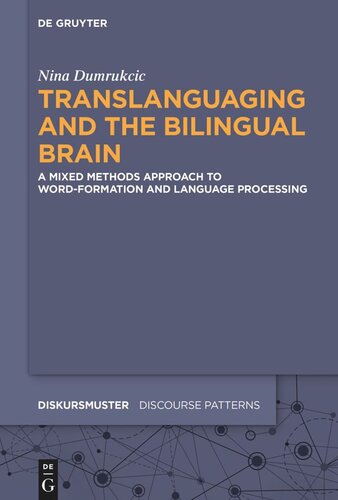

Most ebook files are in PDF format, so you can easily read them using various software such as Foxit Reader or directly on the Google Chrome browser.
Some ebook files are released by publishers in other formats such as .awz, .mobi, .epub, .fb2, etc. You may need to install specific software to read these formats on mobile/PC, such as Calibre.
Please read the tutorial at this link: https://ebookbell.com/faq
We offer FREE conversion to the popular formats you request; however, this may take some time. Therefore, right after payment, please email us, and we will try to provide the service as quickly as possible.
For some exceptional file formats or broken links (if any), please refrain from opening any disputes. Instead, email us first, and we will try to assist within a maximum of 6 hours.
EbookBell Team

5.0
40 reviewsMultilingual classrooms and online communication are becoming increasingly linguistically diverse due to globalization and new discourse patterns are emerging. Many of these patterns include the use of linguistic resources from multiple languages in the same utterance. Translanguaging, a recent theoretical framework, is gaining prominence among scholars interested in studying these multilingual discursive practices and the concept of a unitary language system for lexical processing.
The aim of this book is to gain a better understanding of the bilingual brain and how words and sentences that use features from socially distinct languages are processed. Using examples provided by multilingual study participants, a categorization of the various forms of translanguaging is developed to build a translanguaging model. Psycholinguistic methods such as eye tracking are combined with conventional sociolinguistic survey methodology to provide rich qualitative and quantitative data that address the cognitive effects of translanguaging and the underlying structure of translingual word-formations.
This monograph shows how language biography, exposure, and attitude towards multilingual discursive practices all affect cognitive processing. It also demonstrates how multilingual speakers are setting the patterns for novel word-formations to be produced, thus having a social, cultural, and cognitive impact on how we communicate.